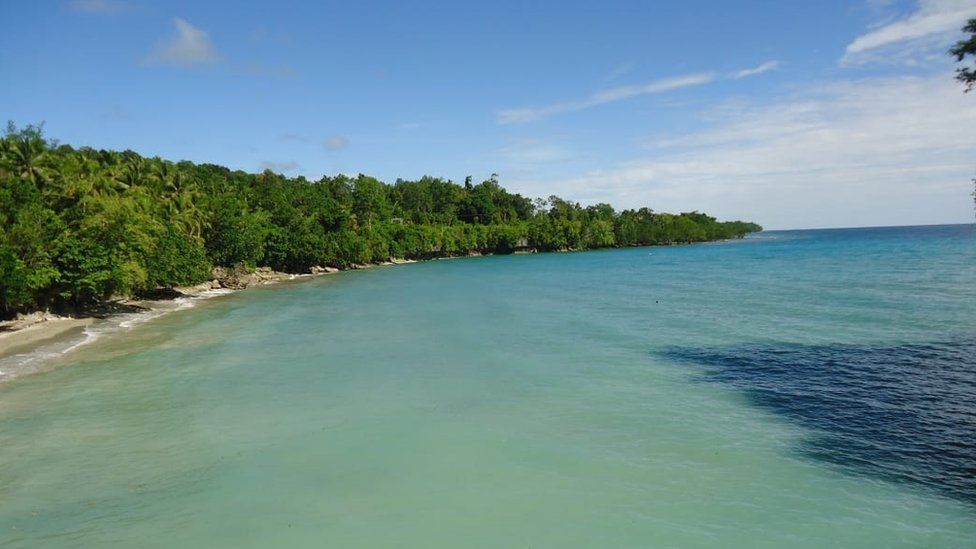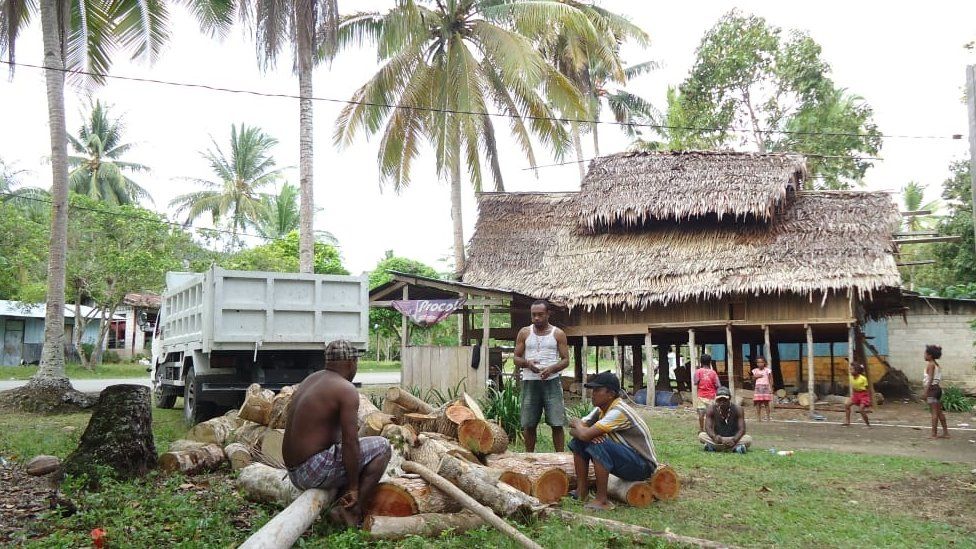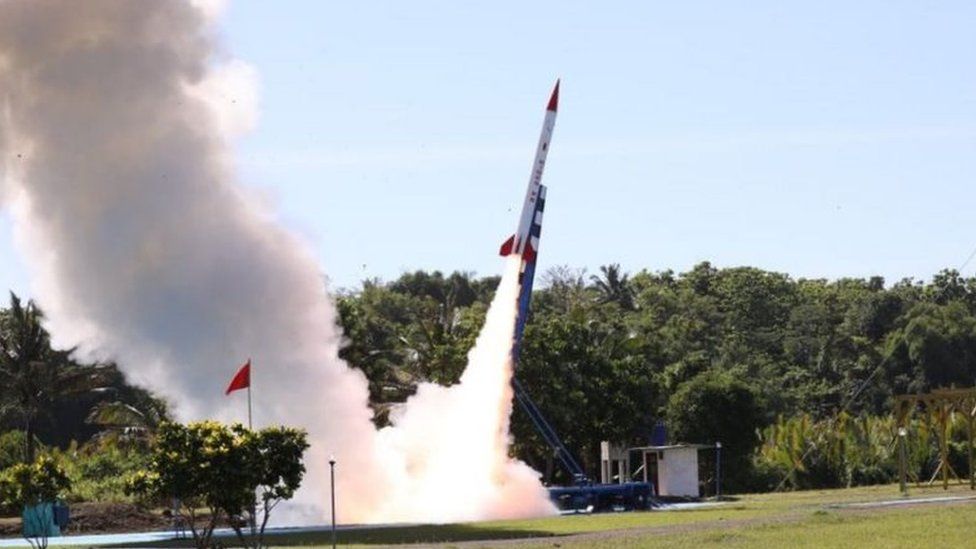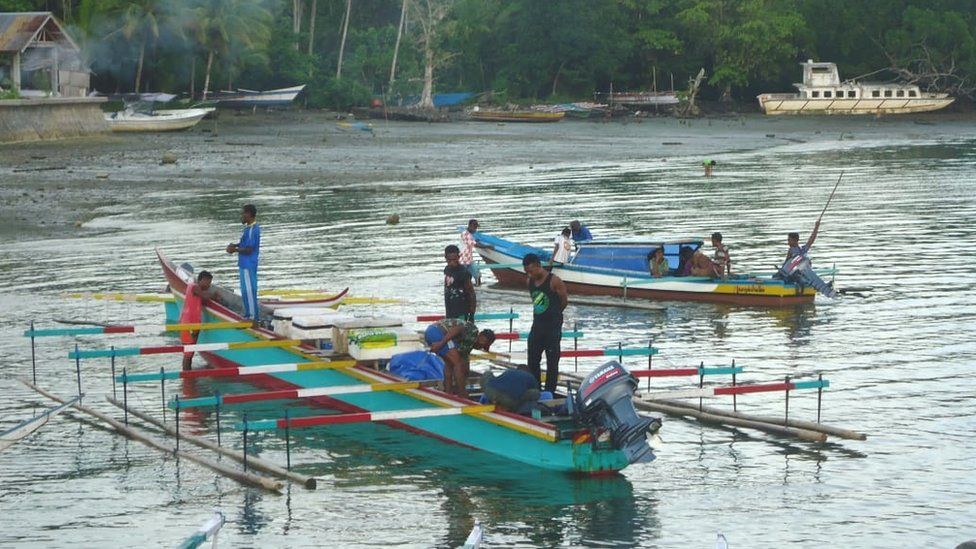Indonesia has offered up one of its islands in West Papua as a potential launch site for Elon Musk’s ambitious Space X project – which aims to put humans on the moon.
Though Mr Musk has yet to accept the proposal, Indonesia has still made it clear that it has big space ambitions for Biak island- which is worrying its residents.
Markus Abrauw who has spent his whole life in Biak is one of them.

The 54-year-old grandfather of eight belongs to the island’s indigenous Abrauw clan which has called the island home for generations.
But he now fears that their home could be threatened should Biak be used as a launch site.
“If it is built, it would mean our children and grandchildren would no longer be able to rely on the land to make a living,” he said.
“It would destroy the sea and forests.”
A resource rich land
Biak is just 1,746 km² – slightly bigger than the city of London – and located in the Indonesian portion of New Guinea known as West Papua and home to around 100,000 residents.
The island is inhabited by over a dozen different indigenous ethnic groups and though there are several urban centres, most of the island is still relatively rural.

“Most Papuans in the area still derive their subsistence from the area around them – fishing, gathering – they are still very much dependent on their surroundings,” Sophie Chao, a Postdoctoral Research Associate at the University of Sydney said.
But Biak also has several features that make it attractive for anyone with space ambitions.
It is flush with nickel and copper – both used to manufacture rockets.
It also sits one degree below the equator, which makes it ideal for launching spacecraft as less fuel is needed to reach orbit.
In fact, Indonesia’s space ambitions for Biak begin well before Elon Musk entered the scene.
Its Aeronautical and Space Agency (Lapan) has had its eye on the island for decades – and in 1980, even bought up a 100 hectare parcel of land. However, due to various challenges, nothing happened on this front.
The site is an important hunting ground with a fishing spot nearby.
But most importantly, it sits around 2km away from the nearest residential area, Saukobye village – and villagers fear they will be forced to relocate.
‘There will be killings’
Most West Papuans have customary claims to specific parcels of land, passed down from generation to generation.
“We Papuans have to live in [the area of land that is passed on to us],” said Mr Abrauw.
“We cannot move to any other place. If we are, there will be hereditary killings. There will be conflict between clans that have the rights to the land, and clans who want to enter the land.”
Apolos Sroyer, head of the customary councils in Biak adds that the SpaceX proposal showed how Indonesia does not take the rights of indigenous people into consideration.
“Most projects in Papua only create conflict for us [locals],” he said.

The relationship between West Papua and Indonesia is a troubled one. The former Dutch colony did not become part of Indonesia until 1963 – and many are still calling for independence, with feelings of resentment towards the government.
An international space destination
The head of Lapan, Thomas Djamaluddin said that the project would bring much needed modernisation to the island.
A potential launch pad he says, would stimulate the tourism and satellite industry in Biak, changing it to a more “modern society” within the next decade.

“We will maintain the traditional values of Biak, but [people there] may no longer need to depend on the land as a hunting ground, or a place to grow crops. The use of the land may change with the entry of more advanced industries,” he said.
Mr Djamaluddin also added that he had received letters of support from around 60 traditional leaders in Biak – a fact disputed by Mr Abrauw.
According to Mr Djamaluddin, Lapan is currently exploring two possible scenarios – the first, a small-scale launch site capable of sending satellites under 100kg into space.
This would fit the brief of what a project like SpaceX might need, and would only require the 100 hectares of land it currently owns.
The second more ambitious plan would see it build a large scale international space port – which would presumably require a lot more land.

SpaceX has yet to officially confirm their interest in building a launch pad on Biak, but according to Mr Djamaluddin, Mr Musk seemed “interested” when Indonesian president Joko Widodo mentioned it.
In a follow-up meeting with SpaceX representatives last January, Mr Djamaluddin said the issues did not come up.
But that’s not stopping Lapan’s big space ambitions for the island.
In addition to SpaceX, it has also approached Japan, Korea, China and India as potential investors. But why might Indonesia be so keen to offer up Biak?
“It would bring in a huge amount of political capital for Indonesia, for it to [establish itself] as a strong player in the realm of ASEAN,” Associate Professor Wolfram Dressler of the University of Melbourne said.
“It is also one way to pull a politically contentious arena closer to the [capital]. So this isn’t something that’s just about a space launch and possible economic revenue – it’s also a political operation if you will.”
Ultimately, says Ms Chao, both scenarios – the lush Biak that the the villagers want and the space powerhouse envisioned by the government – cannot co-exist.
“The [space] project is a very visionary project – its about dreams of extra-terrestrial exploration and is full of wonder. But the danger is that these technological dreams are coming [at the cost] of the Papuans, whose dreams are much more modest,” said Ms Chao.
“Biak is a place of many dreams – but these dreams cannot all be realised.”